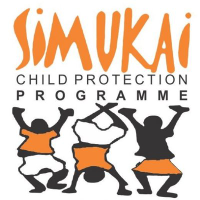Terms of Reference Scientific Investigation of Impacts of Mining Operations on the environment and communities
Job Description
Terms of Reference
Scientific Investigation of Impacts of Mining Operations on the environment and communities
Introduction and background
Mining in Zimbabwe is a crucial part of the economy but has historically caused environmental degradation. This leads to various problems such as pollution, damage to vegetation, health issues for humans and livestock, and water shortages. If not well managed pollutants from mining activities heavily contaminate rivers resulting in a diverse of complications for the local and downstream communities and ecosystems. Prioritisation of the preservation of the natural environment and the well-being of millions of people who rely on the ecosystem that is impacted by mining activities is key. Pollutants generated by mining operations can cause health complications. Monitoring pollution levels in water, soil and air quality is crucial to understand the extent of the damage. Biodiversity, ground stability, noise, and vibration monitoring is also crucial to ensure safety and protect communities and wildlife. It is against this background that a local NGO is seeking the services of experienced scientific researchers to carry out a scientific quantitative and qualitative study on the impacts of mining and mineral processing activities on water resources, biodiversity, the environment, and human health in different parts of Zimbabwe.
2.0 Consultancy Objectives
The objective of this research is to conduct a comprehensive scientific study to assess the impacts of mining and mineral processing activities on water resources, biodiversity, the environment, and human health in various regions of Zimbabwe.
Duties and Responsibilities
3.0 Activities and Key Deliverables
• Conduct water quality testing in streams, rivers or dams around selected mining sites for assessing water quality levels or contamination levels
• Identify and profile the biological, chemical or physical effects of pollution on communities, the environment and other ecosystems
• Conduct scientific testing of air and soil contamination or pollution from mining operations
• Measure noise and vibration levels generated by mining operations and compare with prescribed safety standards
• In the report provide a theoretical assessment of the environmental impacts caused by water, soil, noise, vibration and air pollution from mining activities, including habitat loss, species displacement, potential threats to the local ecosystems and the short and long-term effects on human well-being.
• Produce a map of the areas where samples for testing were collected and use GPS systems or other applications/technologies to gather information where possible.
• Compilation of a comprehensive research report detailing the findings, conclusions, and recommendations for mitigating the impacts of mining on water resources, biodiversity, the environment, and human health in Zimbabwe.
Qualifications and Experience
4.0 Applicant requirements
Suitable applicants should have the following:
• Expertise: The consultant should have extensive experience and expertise in conducting scientific research related to the environmental and health impacts of mining and mineral processing activities. They should possess a strong background in disciplines such as environmental science, biology, chemistry, ecology, public health, or related fields. A multi-discplinary team will be desirable.
• Data Collection and Analysis: The consultant should be proficient in collecting and analyzing data related to water quality, air quality, soil contamination, biodiversity, and health indicators. They should employ appropriate scientific techniques and tools for data collection, ensuring accuracy, reliability, and adherence to established standards.
• Stakeholder Engagement: The consultant should demonstrate the ability to engage with relevant stakeholders, including local communities, NGOs, government agencies, and mining companies. Effective communication and collaboration skills are essential to gather information, address concerns, and facilitate cooperation throughout the research process.
How to Apply
0.5 How to Apply
Interested and qualified Consultants who meet the above requirements should send their Expressions of Interest clearly stating how they meet the requirements, their understanding of TORs methodology to be used and cost of the consultancy to: [email protected]
Deadline for submission of EOI is 20 February 2023
Similar Listings

Terms Of Reference
Oxfam — Harare

Terms Of Reference
Oxfam — Harare

Baseline Assessment for the project, “Integrated Emergency Response for El Niño Drought Affected Communities in Zimbabwe,
Oxfam — Harare

CALL FOR EXPRESSION OF INTEREST FOR CONSULTANCY SERVICES FOR THE DESIGN AND IMPLEMENTATION OF A CAPACITY DEVELOPMENT PROGRAM FOR SIMUKAI CHILD PROTECTION PROGRAMME
Simukai Child Protection Program — Harare

Location: Harare
Company: Local NGO
Expiry Date: 2024-02-20 00:00:00
